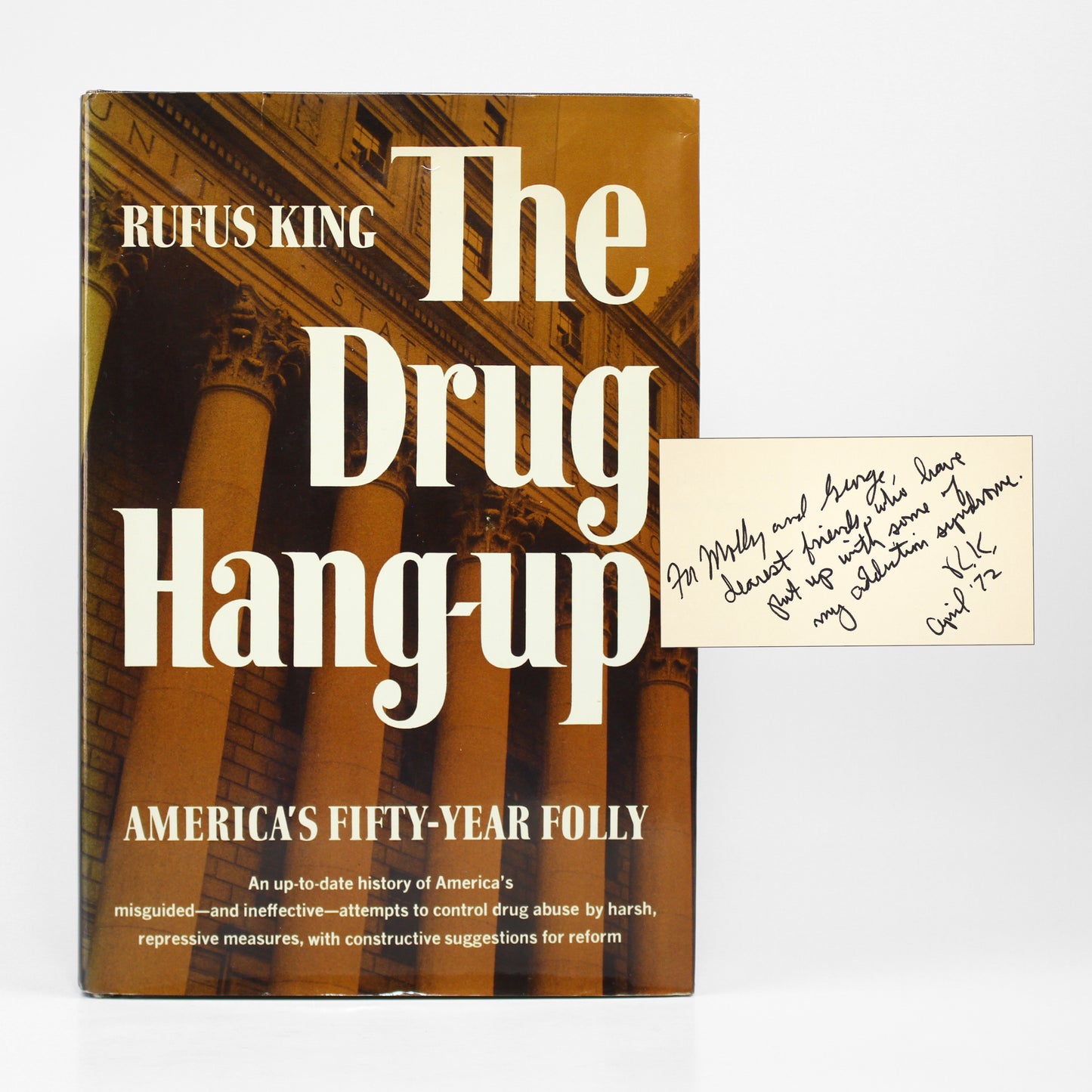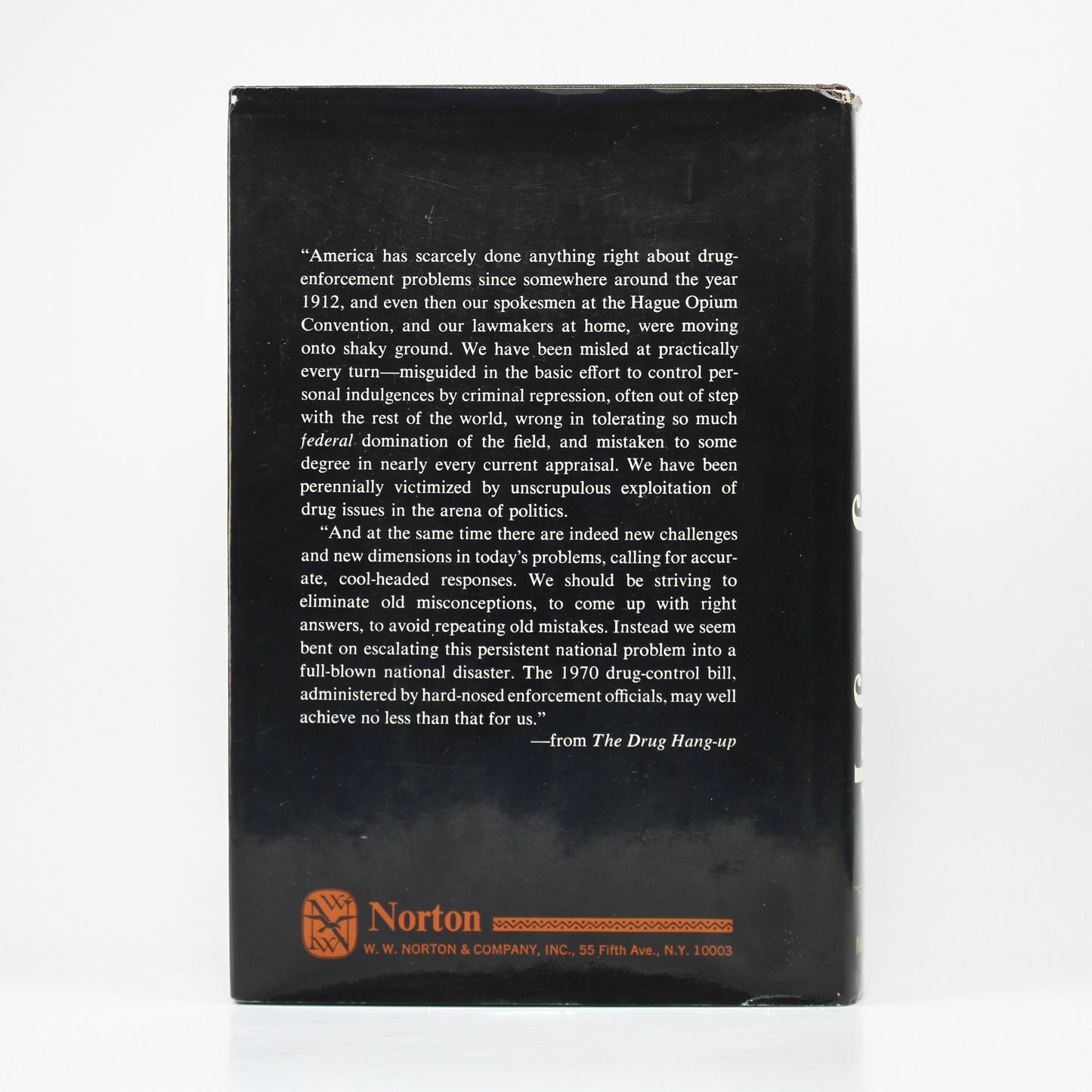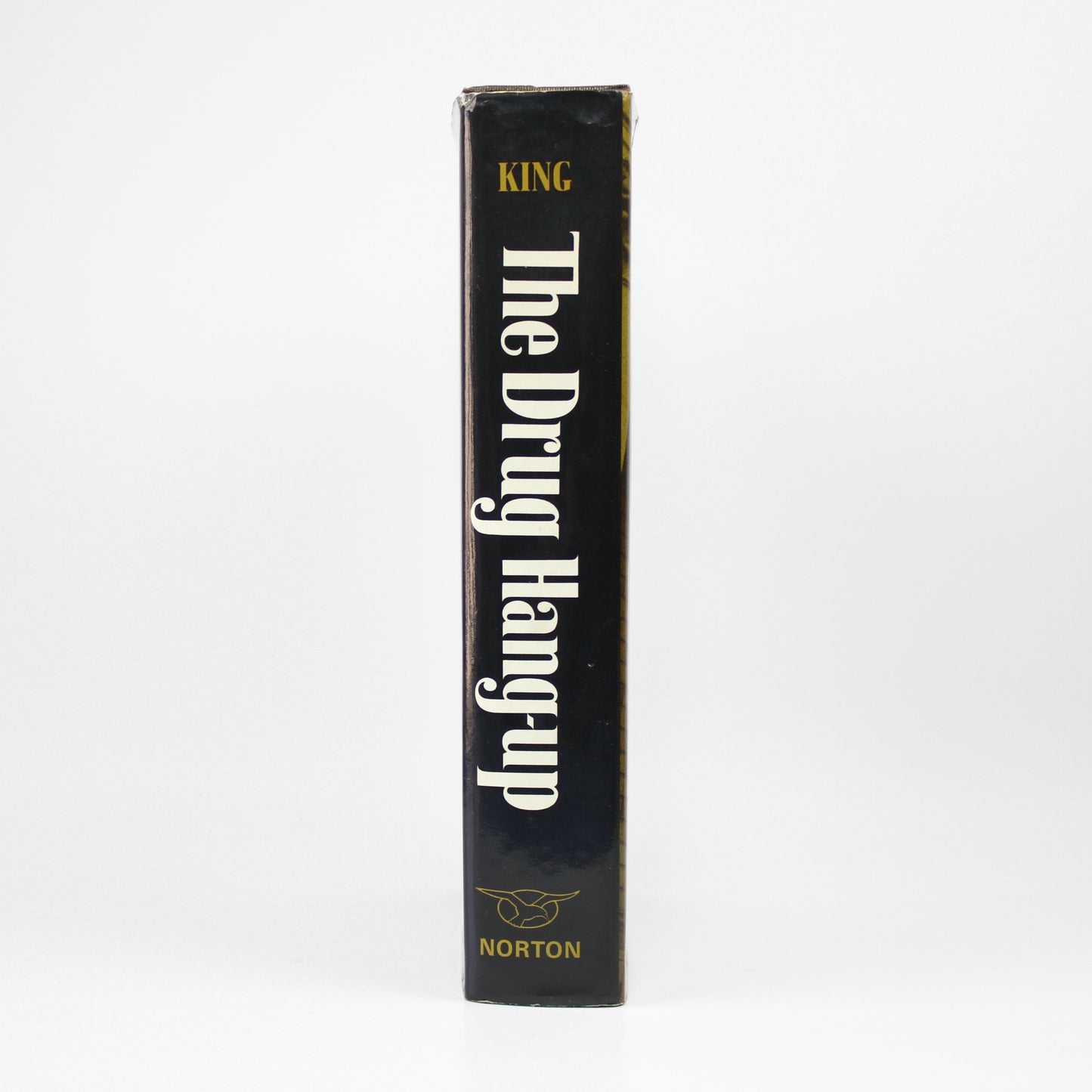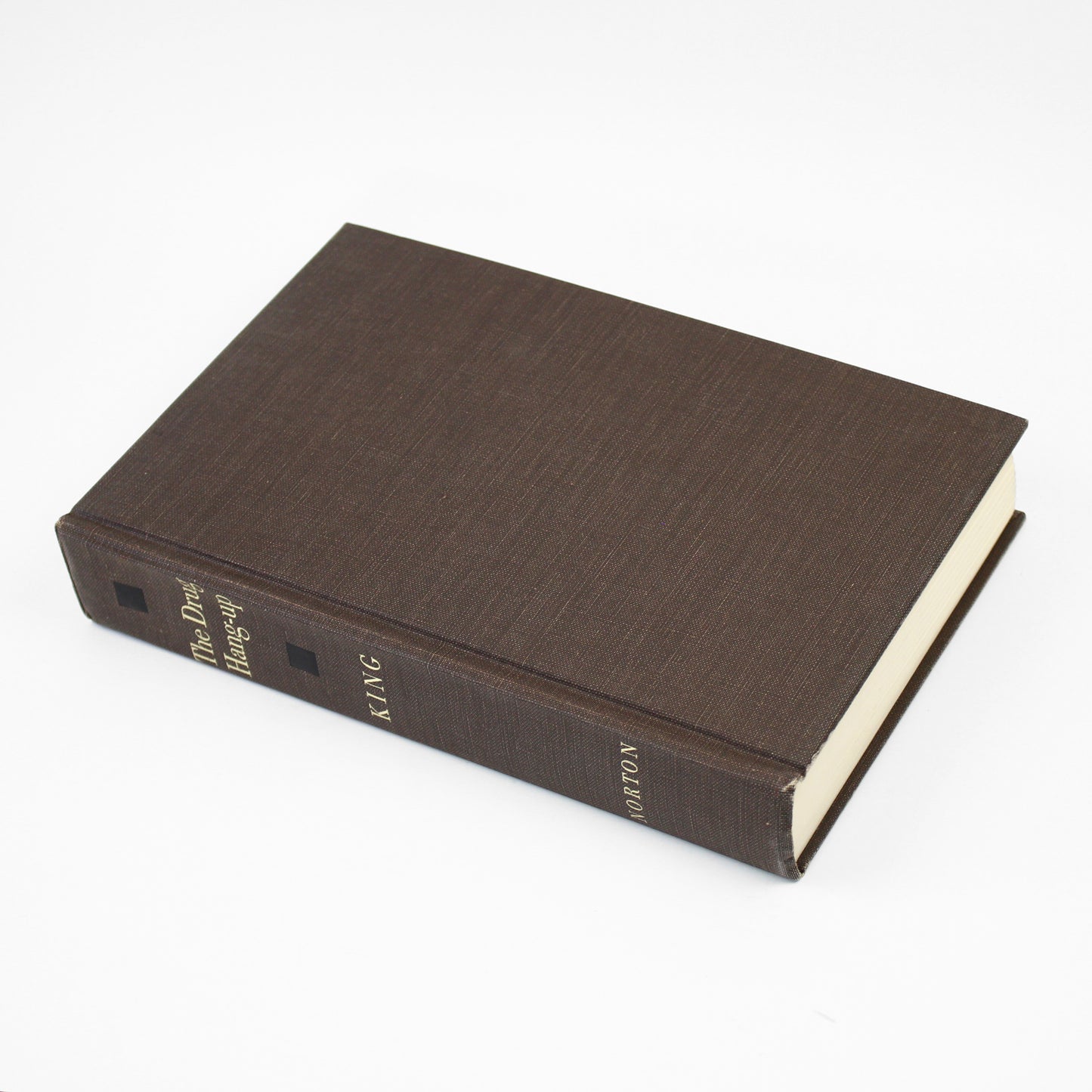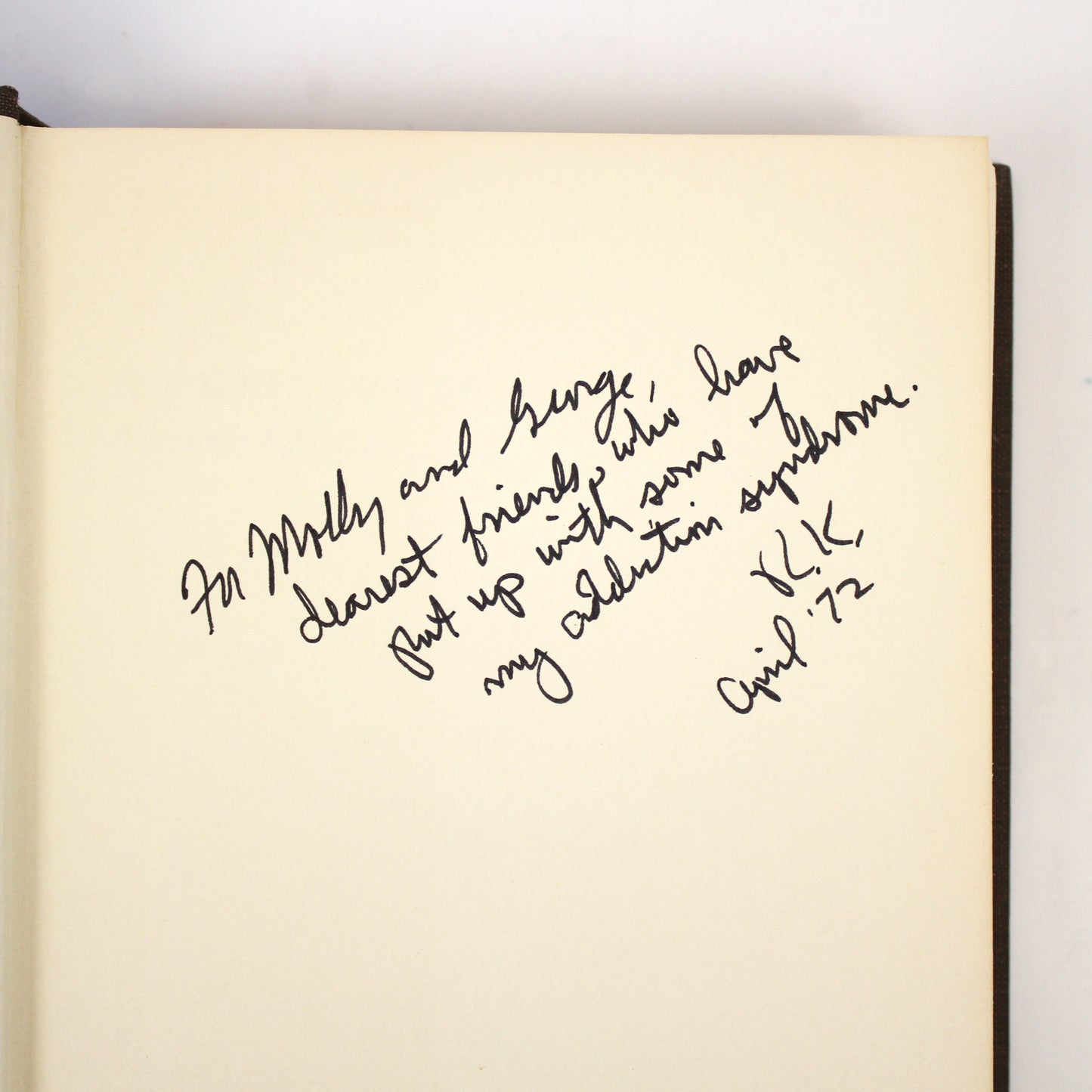KING, Rufus
KING, Rufus
“If people have no freedom to make such choices as cannabis over nicotine for their preferred lung irritant, what did the Constitution leave to them?”
NY: W.W. Norton & Company, 1972. First edition. Octavo. Vi, 389pp.; index. Brown cloth boards; gold spine lettering; dust jacket. Bumping and shelfwear at spine ends, else fine in near fine jacket, clipped at base of front flap but with “$8.95” price still present at top corner. Inscribed, dated and initialed by King on the front free endpaper: “For Molly and George, dearest friends, who have put up with some of my addiction syndrome.”
A nicely inscribed copy of this articulate and damning history of America’s enforcement-oriented approach to the drug problem. King investigates the various parties responsible for shaping the country’s punitive drug laws, from overzealous law enforcement agencies to pharmaceutical companies keen to protect their bottom lines. His research is thorough and cogently laid out, with frequent citations from congressional records and other government reports. Ultimately, he makes a case against criminalization as misguided and inefficient, and argues instead for a more measured federal response, one that involves improving access to addiction-related medical support and the “abolition of all possession offenses.” King’s only significant oversight, from the contemporary perspective, is his failure to address the racial inequities inherent in drug criminalization. Nonetheless, a useful social history, and a book that deserves renewed attention now that, another fifty years having passed, America’s draconian drug laws are finally being reconsidered in a rational and humanistic light.
Couldn't load pickup availability
